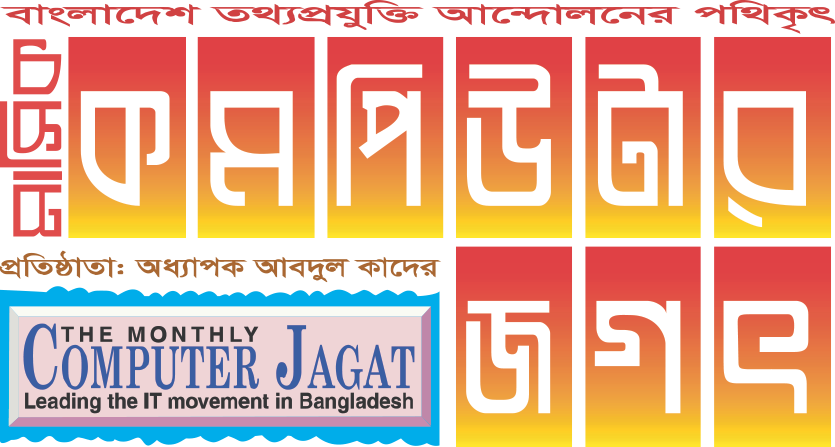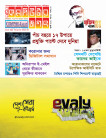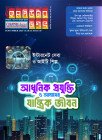হোম > Bangladesh’s Digital Diplomatic Combat in the Age of Fake News, Disinformation and Social Media
লেখক পরিচিতি
লেখকের নাম:
নিজস্ব প্রতিবেদক
মোট লেখা:১৪৪
লেখা সম্পর্কিত
পাবলিশ:
২০২০ - জুলাই
তথ্যসূত্র:
কমপিউটার জগৎ
লেখার ধরণ:
নিউজ
তথ্যসূত্র:
ইংরেজি সেকশন
ভাষা:
বাংলা
স্বত্ত্ব:
কমপিউটার জগৎ
Bangladesh’s Digital Diplomatic Combat in the Age of Fake News, Disinformation and Social Media
Diplomacy is a fi ne art, heir to centuries of epochal
deal making, system building, peacemaking and
confl ict avoidance and resolution – it is, in many ways, a
profession for the ages. In the minds of men and women at
large, however, it is also seen as a profession conducted in
rarefi ed environs, in dizzying ivory-towered heights, away
from the hurly-burly of earthling life.
Digital diplomacy has become one of the most important
tools of diplomacy for any country that should not be
overlooked. With the rapid technological advancement, the
media landscape has changed, and there are threats emerge
and undermine the trust that the global public has for the
institutions of the digital diplomacy.
At the core of diplomacy lies the art of communication
– communication with credibility, more precisely. Fluency
in communication, eloquence combined with economy in
the use of language and possessing the antennae to pick up
surround sound, the reverberations from the ground, is what
makes good diplomacy tick.
A new diplomatic order
This is the age of the ‘naked diplomat’, as famously
defi ned by Ambassador Tom Fletcher, lately retired from Her
Majesty’s British Foreign Service: the naked diplomat with
the smartphone, shorn of all the trappings of yesteryear. It
is the era of citizen diplomacy, subject to oversight from the
population at large that is buoyed by the freedom of the internet
and the online, digital world. The demands of openness and
transparency in policy deployment and articulation, real-time
communication, countering fake news and alternative facts
in a post‐truth world, clarity and conciseness, are all upon
diplomacy.
Diplomacy in an age of social media is beginning to leave
its ozone chamber, its protected past, to become interactive,
better networked and more people-centred and peoplefriendly.
Many social media platforms boast of followers
and subscribers that equal the populations of large-sized
countries. As the Australian national security expert Rory
Medcalf recently said, “The job descriptions for hacks,
spooks, diplomats and wonks are becoming less and less
distinct, blurring at the edges into a spectrum of geopolitical
knowledge makers and manipulators…when a crisis or event
breaks across the 24‐hour information cycle, pioneers from
each profession fi nd themselves turning to fast-paced, fl exible
social media – Twitter, blogs, Facebook, YouTube – to help
make and project succinct meaning in a world of noise.”
Bangladeshi embassies and diplomatic missions across
the world are active on Facebook, YouTube and Twitter
these days. ICT adviser of Bangladesh, Foreign embassy
& ICT minister’s Facebook and Twitter timeline is a hub of
activity. ICT adviser & minster is the most followed male
on Facebook & Twitter. Their presence online is a powerful
example of how digital diplomacy connects government with
citizens, particularly those in need of consular assistance,
often reuniting families and helping individuals in distress.
According to Twiplomacy, the most-followed world leaders
on Twitter have one thing in common: they have discovered
Twitter as a powerful one-way broadcasting tool.
The digital world has no notion of the limits that defi ned
the world of the 1970s and 80s. The underpinnings of how
diplomacy was conducted through the centuries are being
questioned. New core competencies in dealing with cyber
threats and vulnerabilities, the knowledge revolution,
the assembling of big data and how to use it, and the
coming of artifi cial intelligence will need to be developed.
Nation branding and place branding will be a part of the
exercise. This will involve promoting coalitions between
governmental departments and outstanding minds in
business and industry, scientists and design specialists. And
all this combined with authenticity, credibility and trust.
There is also need in this digital universe to size up the
competition and opposition that we face. This is not about
trolls on Twitter verse but the country’s adversaries in the
real world, the proxy warriors, the enemies of the people.
Countering propaganda emanating from such groups or
stemming the tide of their ideological narrowness and calls
to violence will require a carefully-formulated strategy
that is constantly being tested for quality and relevance.
A journalist recently proclaimed that the next world war
would be fought on social media. He did not seem to be
joking.
Twenty-fi rst-century diplomacy thus requires an
amplifi cation of purpose. All the traditional tasks of
diplomacy continue, but we ignore the adoption of all the
new information technologies for communication – the
social media platforms – at our peril.
deal making, system building, peacemaking and
confl ict avoidance and resolution – it is, in many ways, a
profession for the ages. In the minds of men and women at
large, however, it is also seen as a profession conducted in
rarefi ed environs, in dizzying ivory-towered heights, away
from the hurly-burly of earthling life.
Digital diplomacy has become one of the most important
tools of diplomacy for any country that should not be
overlooked. With the rapid technological advancement, the
media landscape has changed, and there are threats emerge
and undermine the trust that the global public has for the
institutions of the digital diplomacy.
At the core of diplomacy lies the art of communication
– communication with credibility, more precisely. Fluency
in communication, eloquence combined with economy in
the use of language and possessing the antennae to pick up
surround sound, the reverberations from the ground, is what
makes good diplomacy tick.
A new diplomatic order
This is the age of the ‘naked diplomat’, as famously
defi ned by Ambassador Tom Fletcher, lately retired from Her
Majesty’s British Foreign Service: the naked diplomat with
the smartphone, shorn of all the trappings of yesteryear. It
is the era of citizen diplomacy, subject to oversight from the
population at large that is buoyed by the freedom of the internet
and the online, digital world. The demands of openness and
transparency in policy deployment and articulation, real-time
communication, countering fake news and alternative facts
in a post‐truth world, clarity and conciseness, are all upon
diplomacy.
Diplomacy in an age of social media is beginning to leave
its ozone chamber, its protected past, to become interactive,
better networked and more people-centred and peoplefriendly.
Many social media platforms boast of followers
and subscribers that equal the populations of large-sized
countries. As the Australian national security expert Rory
Medcalf recently said, “The job descriptions for hacks,
spooks, diplomats and wonks are becoming less and less
distinct, blurring at the edges into a spectrum of geopolitical
knowledge makers and manipulators…when a crisis or event
breaks across the 24‐hour information cycle, pioneers from
each profession fi nd themselves turning to fast-paced, fl exible
social media – Twitter, blogs, Facebook, YouTube – to help
make and project succinct meaning in a world of noise.”
Bangladeshi embassies and diplomatic missions across
the world are active on Facebook, YouTube and Twitter
these days. ICT adviser of Bangladesh, Foreign embassy
& ICT minister’s Facebook and Twitter timeline is a hub of
activity. ICT adviser & minster is the most followed male
on Facebook & Twitter. Their presence online is a powerful
example of how digital diplomacy connects government with
citizens, particularly those in need of consular assistance,
often reuniting families and helping individuals in distress.
According to Twiplomacy, the most-followed world leaders
on Twitter have one thing in common: they have discovered
Twitter as a powerful one-way broadcasting tool.
The digital world has no notion of the limits that defi ned
the world of the 1970s and 80s. The underpinnings of how
diplomacy was conducted through the centuries are being
questioned. New core competencies in dealing with cyber
threats and vulnerabilities, the knowledge revolution,
the assembling of big data and how to use it, and the
coming of artifi cial intelligence will need to be developed.
Nation branding and place branding will be a part of the
exercise. This will involve promoting coalitions between
governmental departments and outstanding minds in
business and industry, scientists and design specialists. And
all this combined with authenticity, credibility and trust.
There is also need in this digital universe to size up the
competition and opposition that we face. This is not about
trolls on Twitter verse but the country’s adversaries in the
real world, the proxy warriors, the enemies of the people.
Countering propaganda emanating from such groups or
stemming the tide of their ideological narrowness and calls
to violence will require a carefully-formulated strategy
that is constantly being tested for quality and relevance.
A journalist recently proclaimed that the next world war
would be fought on social media. He did not seem to be
joking.
Twenty-fi rst-century diplomacy thus requires an
amplifi cation of purpose. All the traditional tasks of
diplomacy continue, but we ignore the adoption of all the
new information technologies for communication – the
social media platforms – at our peril.
লেখাটি পিডিএফ ফর্মেটে ডাউনলোড করুন
লেখাটির সহায়ক ভিডিও
পাঠকের মন্তব্য
অনুরূপ লেখা


